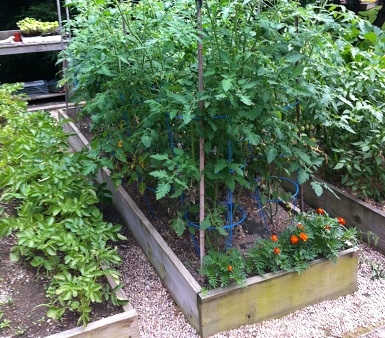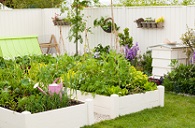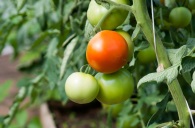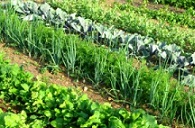The Importance Of Organic Gardening
 Methods of gardening and growing food are many, and some are very old. Today, organic gardening has become a basic method of gardening that spans not only commercial production, but also encompasses many homesteads and personal landscapes. Although “organic” methods of gardening are nothing particularly new, the urgency for growing things and treating the land organically has become a major consideration for those who garden and produce crops. Sustainable methods that are friendlier long-term to the earth and to everything growing plants and keeping beautiful landscapes affects is paramount. Land changed and produce changed and degraded by non-organic methods of cultivation and production has proven that sustainable methods and organic gardening are extremely important.
Methods of gardening and growing food are many, and some are very old. Today, organic gardening has become a basic method of gardening that spans not only commercial production, but also encompasses many homesteads and personal landscapes. Although “organic” methods of gardening are nothing particularly new, the urgency for growing things and treating the land organically has become a major consideration for those who garden and produce crops. Sustainable methods that are friendlier long-term to the earth and to everything growing plants and keeping beautiful landscapes affects is paramount. Land changed and produce changed and degraded by non-organic methods of cultivation and production has proven that sustainable methods and organic gardening are extremely important.
Organic Gardening Might Not Be What You Think
There are a lot of misconceptions about what makes organic gardening truly organic. It’s commonly known that the use of harsh pesticides and chemical fertilizers aren’t considered or even allowed in organic production. There are some fertilizers and pesticides that are quite potent that are still allowed in organic farming however. For example, pyrethrum is a chemical derived from chrysanthemums that works as a general bug killer- but because it can be naturally made it’s allowed in organic farming practices. The synthetic versions of pyrethrum are also commonly used. Despite this insecticides potency across all types of bugs, good and bad, it’s still allowed as a method of insect control in organic farming methods. Food treated with pyrethrum can still be labeled as organic. Organic produce also may mean and include the use of hybrid seed, even treated seed. However, GMO seed can’t be used, as well as organically raised animals such as cows, and chickens for eggs and meat can’t be fed GMO feed. Interestingly, producers of organic crops don’t have to start with seed produced organically- as long as they grow the seed on organically, the produce from those plants can still be labeled organic.
Organic Gardening Works and is Essential for Everyone
Home growers find it easy to use truly organic methods of growing their own food, raising their own animals, and tending to their own ornamental landscapes and plant collections. Manual removal of bugs, relying on predator/prey relationships that occur naturally to keep bugs in check- employing the use of companion planting and positive side effects of animal and plant relationships (chickens or guineas as bug control in the field rows for example) are all easy ways for the small time home grower to rely on organic and natural methods of farming. There’s more variance in seed and varieties available to those who grow for their own hobby or household benefit, which when growing organically are ideal- as varieties all have different resistances and respond to different growing conditions than the carefully bred and very “vanilla” varieties developed for mass field commercial production. When managed properly, a homestead of an acre or two can sustain a family and their food needs completely naturally and organically for an unlimited amount of time. This would be impossible with non-organic methods of production. Coincidentally, commercial operations are beginning to discover this same reality. Conventional methods not only don’t work long term on the homestead or backyard, but they also don’t work in giant mono-crop field production.
Organic gardening is an essential and necessary method of gardening that spans commercial fields to small backyard tomato pot growers- and it’s incredibly easy to do. Have you tried growing your food and ornamentals organically? What steps can you take to start trying out organic methods?
You may also like:
 Organic
Gardening For Tight Spaces With
some creativity and resourcefulness you can build a plentiful organic
garden...
Organic
Gardening For Tight Spaces With
some creativity and resourcefulness you can build a plentiful organic
garden...
 Growing
Organic Tomatoes One of the most
popular organic gardening choices for your home garden are growing
organic tomatoes...
Growing
Organic Tomatoes One of the most
popular organic gardening choices for your home garden are growing
organic tomatoes...
 Tips
for an Organic GardenTips to consider
when organic gardening. Over the last several years more attention
is being paid to...
Tips
for an Organic GardenTips to consider
when organic gardening. Over the last several years more attention
is being paid to...



